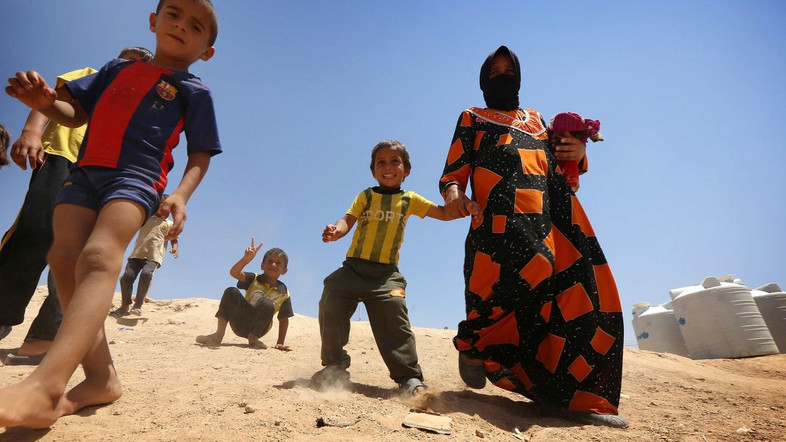Khazir (east of Mosul) – For two months, Yusra Mohammed, a refugee from the embattled city of Mosul, heard nothing from her two children, Qusay and Saddam, who were detained by Kurdish forces.
They were held after fleeing the battleground in the city.
Mohammed heard nothing about the fate of her boys for weeks, until she received a letter from the Red Cross that included a message from Saddam.
He asked for “a lawyer and a meeting and money,” saying that he was in a juvenile prison in the city of Dohuk, one of three provincial capitals in Iraq’s Kurdish region.
Mohammed said members of the Asayesh, the Iraqi Kurdish region’s internal security forces, detained her two teenage boys after the family left east Mosul in February.
“The Asayesh came to ask about Saddam and Qusay, and said they were wanted… and took them,” she told AFP in the Khazir camp for displaced people, referring to her sons, who are aged 16 and 14.
“They were accused of being ISIS members,” Mohammed said.
The boys “were working selling water in Mosul before the extremists prevented them from doing so, and they became unemployed”, she said.
They “are young and are being unjustly treated and we do not have money for a lawyer,” Mohammed said, the fatigue and sadness clear on her face.
Her sons were arrested some two months after the family arrived at the camp in Khazir following a complaint by an informant, their mother said.
She appealed to Kurdish authorities for a trial: “If my sons are found guilty or are cooperating with the terrorists, try them” in court.
Mohammed’s family is not the only one in the camp to have had members arrested after fleeing fighting and instability in the Mosul area, reported Agence France Presse.
Two days after Mousa Mahmud Mousa, 57, arrived at the camp in March, Kurdish forces arrested his 27-year-old son Wazir.
“He employed workers who previously worked with the extremists, but they (security forces) told him: ‘As long as the terrorists worked with you, you are a terrorist,'” Mousa said.
His son was running a shop that produced water tanks, and had been a teacher before ISIS seized Mosul in 2014.
Like Mohammed, Mousa received a letter from the Red Cross confirming his son’s detention, in his case in the Kurdish regional capital of Erbil.
“We want to go out to see him but they prevented that,” Mousa said. “My son is imprisoned in Erbil and we are imprisoned here.”
People in the camp say the Kurdish forces have their identification cards and do not let them leave pending the completion of a security investigation.
Human Rights Watch said Saturday: “New cases have emerged of the detention of men and boys fleeing Mosul on suspicion of affiliation with the ISIS.”
“Family members reported that their relatives were taken into custody, the families had no contact with the detainees for as long as four months,” the watchdog said.
The Kurdish regional government committee tasked with responding to international reports rejected both the families’ accounts and HRW’s findings.
“All defendants are provided access to lawyers and family members, and their families are informed of their arrest,” the committee said in a statement.
Arrests are based on “substantial evidence” and only carried out after a warrant from a judge is obtained, it said.
The committee added the region’s procedures were necessary “to safeguard itself against acts of potential terrorism”.
But Abdullah Suleiman said his 30-year-old brother Ali was arrested based on the length of his beard and suspicion over his name.
“We don’t know anything about him,” Suleiman said.
